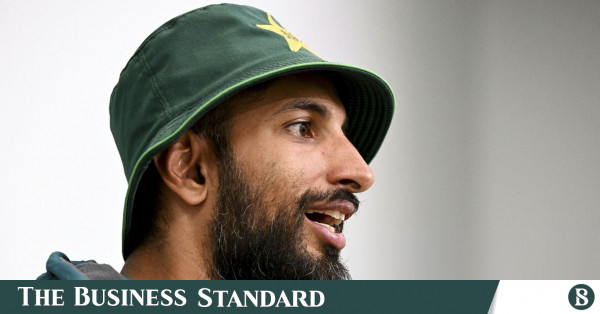Masood and Gillespie call for more Test cricket for Pakistan ahead of series against Bangladesh

Pakistan’s season kicks off with a two-Test series against Bangladesh starting on August 21 in Rawalpindi. The team will then host five additional Tests against England and West Indies, followed by a two-Test series in South Africa.
This marks a significant shift from the norm, as the last time Pakistan had such a full Test calendar was the 1998-99 season.
Masood is concerned about the gaps between Test matches, which he believes have stunted Pakistan’s progress. “We need more Test cricket,” Masood stated during the PCB podcast. “We play a lot of domestic cricket, so I don’t think we can blame that. We do play ten first-class matches minimum, and with the introduction of departmental cricket, some players ended up playing 16-17 first-class matches in a year.” He emphasized that the intermittent scheduling has created a disparity between Pakistan and the leading cricket nations like India, Australia, and England.
Masood’s focus is on improving Pakistan’s performance at home. Although the team had a promising start after Test cricket returned to Pakistan, their recent record has been disappointing. Since a victory against South Africa in January 2021, Pakistan has struggled in home series, including a whitewash by England and a draw with New Zealand. “If I’m being brutally honest, in home Test matches, because they’ve been played at different times of the year and against different nations, we still haven’t found our ideal way of playing at home that suits our batting, bowling, and overall style,” Masood admitted.
The introduction of a new curator, Tony Hemming, will be crucial in addressing the pitch conditions, which have been criticized for their lack of support for batting and bowling. Masood is keen on establishing a strategy that capitalizes on home advantage and improves their performance.
Test coach Jason Gillespie supports Masood’s call for more Test cricket and highlights that the upcoming series will be instrumental for Pakistan. Gillespie commented, “I think the identity will sort itself out. In this next period of time, seven Test matches out of nine are in Pakistan, which is fantastic.” He noted that the PCB is exploring ways to increase the number of Shaheens (Pakistan A) games and four-day cricket to bridge the gap between domestic and international play.
Managing player workloads has also become a significant concern. With a busy schedule ahead, top players like Babar Azam, Mohammad Rizwan, Shaheen Shah Afridi, and Naseem Shah have not been granted NOCs for participation in leagues. Gillespie acknowledged the challenge of balancing national and league commitments, stressing that while representing Pakistan is the priority, any opportunities that enhance player development will be considered. “We want to find the balance between representing Pakistan and not denying players opportunities for experiences,” Gillespie said.
In summary, both Masood and Gillespie are advocating for more frequent and consistent Test cricket to help Pakistan close the gap with top cricketing nations and strengthen their team’s performance on the international stage.




